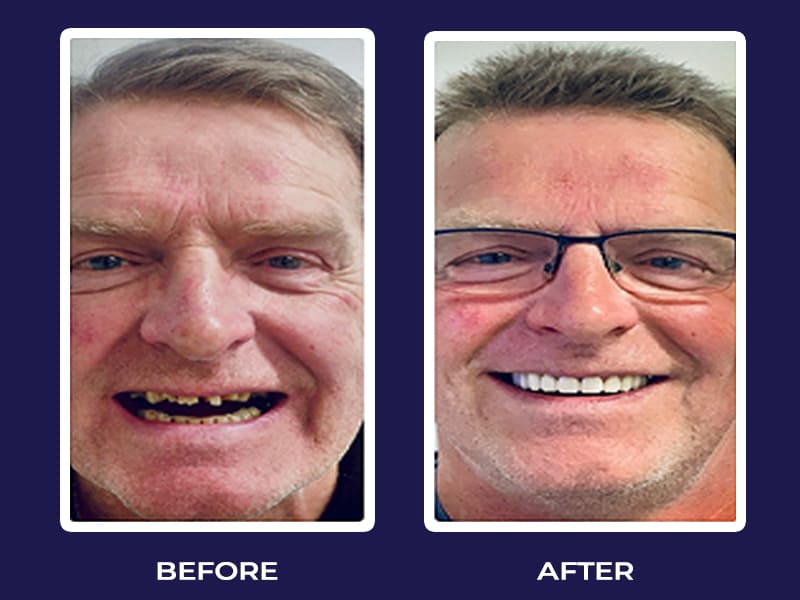
Why Fewer People Have Wisdom Teeth Nowadays
July 10, 2024
In the past, most people were expected to deal with wisdom teeth at some point in their lives, often accompanied by the notorious wisdom tooth pain.
However, recent studies and observations suggest that fewer people today have wisdom teeth than previous generations.
So, why is this happening? Let’s look into the fascinating reasons behind this trend and explore how it affects our dental health.
The Evolution of Wisdom Teeth
Wisdom teeth, also known as third molars, typically emerge in late adolescence or early adulthood. Historically, these teeth were essential for our ancestors who had a diet consisting of hard-to-chew foods like roots, nuts, and raw meat.
The extra set of molars helped them grind down their food effectively. However, as human diets evolved and cooking softened our food, the need for these additional teeth diminished.
Over time, this dietary change has led to a gradual reduction in jaw size. Modern humans often have smaller jaws than our ancestors, which means less space for wisdom teeth to emerge without causing problems. This reduction in jaw size is one reason why many people experience wisdom tooth pain and complications, leading to the need for tooth extraction.
Genetics and the Decline of Wisdom Teeth
Genetics also play a significant role in the presence of wisdom teeth. Studies have shown that certain populations have a higher likelihood of being born without wisdom teeth. For example, a notable percentage of people of Asian descent do not develop wisdom teeth at all. This genetic variation is spreading across different populations, contributing to the overall decrease in the number of people with wisdom teeth.
Modern Dental Care and Wisdom Tooth Extraction
Despite the reduction in the number of people developing wisdom teeth, wisdom tooth pain remains a common issue for many. When these teeth do emerge, they often cause discomfort and other dental problems due to the limited space in the modern human jaw. This is where the expertise of an NHS dentist or a private dentist becomes crucial.
Tooth extraction, particularly wisdom tooth extraction, is a common solution to alleviate wisdom teeth pain. Dental professionals recommend early evaluation and, if necessary, a tooth extraction referral to prevent complications like infection, cysts, or damage to adjacent teeth. If you’re experiencing wisdom teeth pain, it’s essential to seek help from a trusted dentist.
Finding the Right Dental Professional
If you’re searching for a dentist in Hampshire or a dentist in Dorset, or simply looking for “tooth extraction near me,” Smile Circle is here to assist. Smile Circle specialises in connecting patients with reliable dental professionals, ensuring you find a dentist you can trust for both general and cosmetic dentistry needs.
Whether you require wisdom tooth extraction or general dental care, Smile Circle’s network includes both private and NHS dentists ready to help.

For more information on finding a dentist near you, visit smilecircle.com. Smile Circle is dedicated to helping you locate a dental professional who meets your needs and provides exceptional care. With our extensive network of trusted dentists, you can confidently address your dental concerns, including those pesky wisdom teeth.
In conclusion, the decrease in the prevalence of wisdom teeth can be attributed to evolutionary changes, genetic factors, and modern dietary habits.
However, for those who do have wisdom teeth, professional dental care remains essential. Trust Smile Circle to help you find the right dentist for your wisdom tooth extraction and all your dental needs!
Here Are Some Relevant Pieces You Can Read About Wisdom Tooth Extr
- everything you need to know about wisdom tooth extractions
- Your Dental Health Gives A Glimpse Of Your Overall Health
- why tooth extraction is a last resort in modern dentistry
- how long does it take for a wisdom tooth extraction to heal
- understanding tooth extractions
- can you be too old to have your wisdom teeth extracted
- understanding oral development when do teeth and jaws fully develop

 Head Office - UK - Unit 1 B 132 Weyhill Road, Andover, Hampshire England, SP10 2PR.
Head Office - UK - Unit 1 B 132 Weyhill Road, Andover, Hampshire England, SP10 2PR. 









